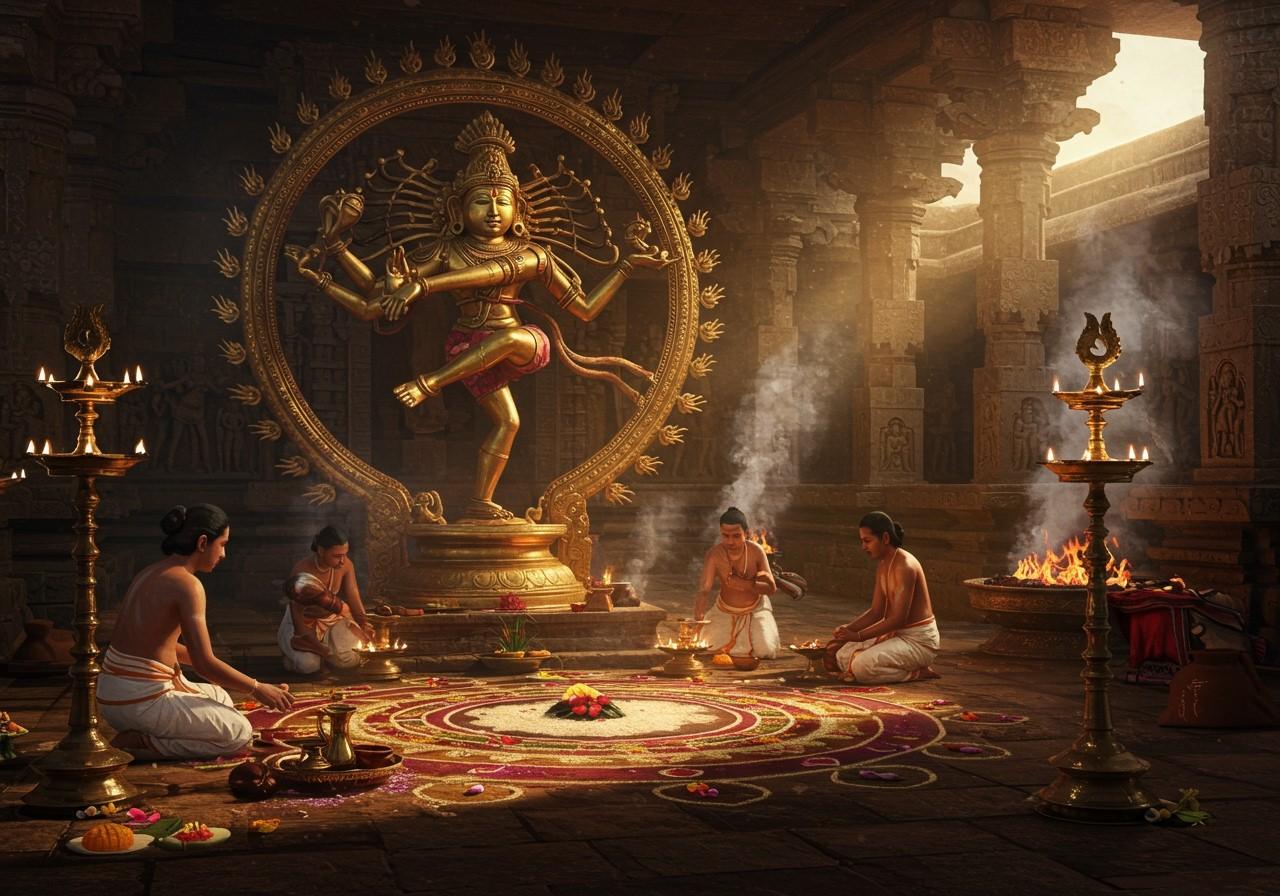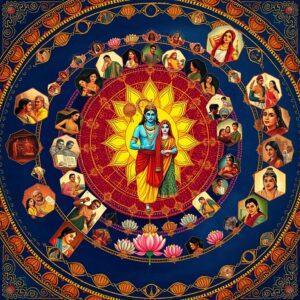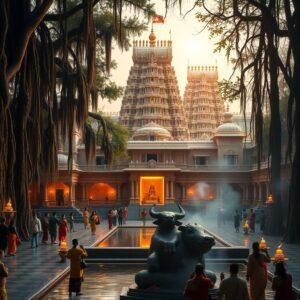
The Chola dynasty, a Tamil dynasty that ruled southern India until the 13th century, is renowned for its rich cultural heritage, including vibrant festivals and celebrations. Their temples served as hubs of daily rituals and grand annual festivals, featuring elaborate ceremonies, music, and dance. The Cholas carried forward the temple-building traditions of the Pallava dynasty, making significant contributions to Dravidian temple architecture. Their legacy encompasses military prowess, cultural fusion, and architectural brilliance, notably exemplified by the Brihadeeswarar Temple built by Rajaraja I.
Historical Context of Chola Rituals
To understand the rituals of the Chola Empire, grasping the historical context is crucial. Ruling from the 9th to the 13th centuries AD, the Chola dynasty strongly adhered to Hindu traditions and practices. Royal patronage of religion ensured rituals were woven into the fabric of daily life. Vedic traditions, local customs, and the king’s role as a religious leader laid the groundwork for elaborate rituals during the Chola era.
Vedic Rituals and Their Importance
Vedic rituals, rooted in ancient Hindu scriptures, were central to Chola religious practices. Yajnas (sacrificial ceremonies), performed frequently, involved complex rites to appease deities and ensure prosperity. These rituals emphasized purity, precision, and adherence to scriptural guidelines. Chola kings often partook in these rituals to legitimize their rule and seek divine favor. Brahmins served as priests, utilizing specific ritual items like fire altars and sacred chants, highlighting the importance of Vedic traditions in the Chola court.
Temple Rituals and Festivals
Temples were the epicenters of religious activity in the Chola Empire. Daily rituals encompassed abhishekam (anointment of deities), alankaram (decoration), and aradhana (worship). Festivals like Panguni Uthiram and Thiruvathirai were celebrated with grandeur, featuring processions, music, dance, and theatrical performances. Monumental temples such as the Brihadeeswarar Temple in Thanjavur showcased the Cholas’ devotion and architectural prowess. These rituals and festivals nurtured religious fervor and provided occasions for community gatherings and cultural expression.
Social and Cultural Impact
The rituals of the Chola Empire profoundly influenced society. They reinforced social hierarchies, with Brahmins occupying a privileged position due to their role in religious ceremonies. Artisans, musicians, and dancers contributed to temple festivals, thereby promoting arts and crafts. Rituals also played a part in wealth distribution, as kings and nobles donated generously to temples. Communal participation in festivals fostered unity and a shared cultural identity among the populace.
Legacy of Chola Rituals
The legacy of Chola rituals extends far beyond their historical period. Many of the temple rituals and festivals initiated by the Cholas are still practiced in South India today. The architectural innovations of Chola temples influenced subsequent temple construction across India. The emphasis on precision and devotion in rituals set a benchmark for religious practices in the region. The preservation of these traditions by communities and institutions underscores the enduring impact of Chola rituals on contemporary Hindu worship.
Modern Relevance and Adaptation
In the modern era, the rituals of the Chola Empire hold significance for those who value traditional practices. The resurgence of traditional festivals and rituals in urban settings reflects a yearning to reconnect with heritage. Online platforms offer a bridge between ancient traditions and contemporary lifestyles, facilitating the continued celebration and preservation of Chola rituals. For those seeking to connect with this rich heritage, Poojn.in provides a valuable resource.
How Poojn.in Helps Preserve Chola-Era Ritual Traditions
Poojn.in offers authentic puja items that connect you to the rich ritual heritage of the Chola period. Our carefully curated products support traditional worship practices that have endured since the Chola era:
- Temple Bells: We offer pure brass temple bells (link), reminiscent of those used in Chola temples, evoking the sacred sounds that mark ritual moments. These bells are crafted with precision and care, ensuring a resonant and authentic sound for your puja.
- Traditional Lamps: Our collection includes bronze and brass lamps (link) that echo historical Chola designs, essential for aarti and daily puja. Each lamp is meticulously designed to reflect the artistic sensibilities of the Chola period.
- Camlin Fountain Pen Ink: Use Camlin Fountain Pen Ink (link) for writing sacred mantras and scriptures, connecting with the spiritual practices of the Chola era where written words held great power. The rich, dark ink enhances the beauty of calligraphy and adds a touch of reverence to your writing.
These items are available for home delivery across India through our secure online platform, www.poojn.in. Each product comes with quality certification and proper packaging to ensure the safe delivery of your sacred items. Our customer service team is ready to assist with specific requirements for temple or home rituals.
Conclusion
The rituals of the Chola Empire are not mere historical relics; they are living traditions that continue to shape the cultural and spiritual landscape of South India. The Chola dynasty’s commitment to religious practices and temple construction has left an enduring legacy, influencing modern rituals and festivals. Today, with the convenience of online shopping, we can readily access authentic ritual items that connect us to our heritage. By embracing these traditions, we honor our past and keep the spirit of the Chola rituals alive in our daily lives.


